- Learning time
- 40 minutes
- First play time
- 90 minutes
Glass Road
Designed by: Uwe Rosenberg
In Glass Road the players are striving to establish their glass-blowing industry in olde Bavaria. Play progresses through cards, which either gain you resources, or build you buildings (sometimes both!)
Everyone begins the game with an individual player board populated with some tiles that denote the current landscape – there’s forests, lakes, pits and groves. You also start with a pair of production wheels that track how many resources you have during the game – you start the game with a limited amount. Finally each player has a deck of fifteen cards – all players have the same cards, and in each round players choose five cards to make their hand, and then play only three of the five cards, one at a time, face down. Why will become clear in a moment.
The cards are then revealed in turn order. They are what drive your game forwards – each representing a person (or specialist, to use the games’ parlance) working for you, they do a job – often two jobs – when you play them: some will cost you resources as pay, and some won’t. We can’t go through all fifteen cards here but in essence, they get you resources and allow you to build buildings. BUT – if anyone has a matching card in their hand (i.e. not the card they have placed face-down to play this turn) the opponent gets to play that card as well. If nobody matches your card, it will offer you two actions. But if any other player does, both you (and they!) only get to make one action with the card in question.
How the resources are tracked is a key part of the game. There are two needles on each production wheel, and as soon as they can move clockwise (i.e. there are no resource markers blocking the way of either needle) they will do so: devaluing all of your basic resources, but at the same time, increasing the number of bricks or glass you have. As the latter are crucial for buying buildings, this is often a good thing…
The buildings come in three basic types: a process building (that allows you to turn one good into another) you can use for the rest of the game, an instant-reward building that just gives you a one-off benefit, and a point-scoring building that – you guessed it – scores you points at the end of the game. The latter work in a variety of ways – the game comes with a plethora of buildings so they vary from game to game. The first two types are great for improving your industry, but don’t neglect those point-scorers!
The game plays for four rounds, then points are tallied up: the highest points wins the game.
The guru's verdict
-
Take That!
Take That!
Yes - a little. You can successfully (or inadvertently) piggyback someone else's turn, which not only gives you a little bonus turn, but devalues the potential of the card for your opponent.
-
Fidget Factor!
Fidget Factor!
High on that first play, but dropping rapidly with familiarity.
-
Brain Burn!
Brain Burn!
It's a rare case of a game with simple rules (certainly simpler than they first appear, at least) but deep decisions.
-
Again Again!
Again Again!
Lots of variety, both in what buildings are available to you (they change game by game) and what your strategy might be.

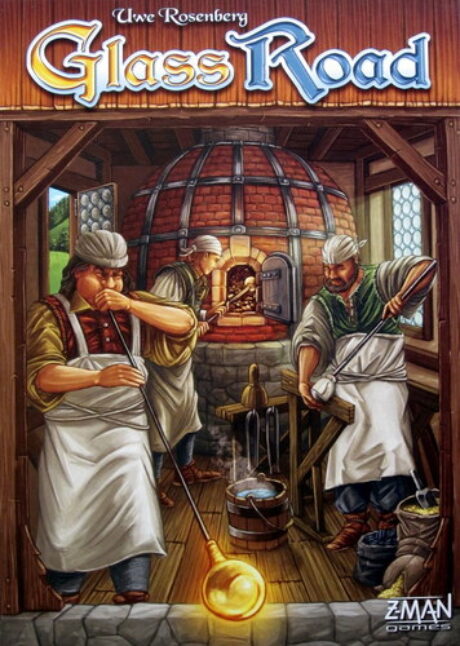
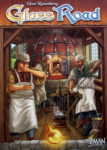

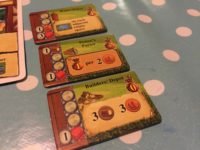
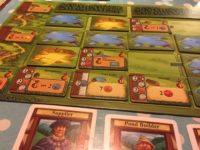
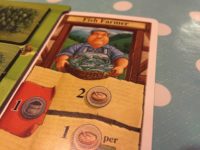
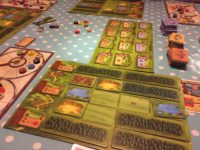


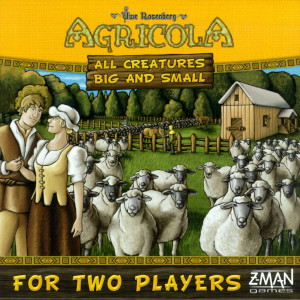


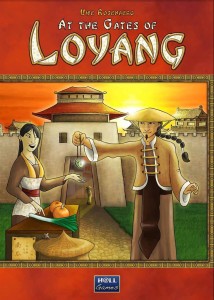
Sam says
At first this game seemed so much like a collection of mechanics to me I was a bit disappointed. I love the same designer's Caverna, which is far more intuitive and user-friendly. At no time did I feel like my plans had anything to do with glass-blowing, or even a vague sense of developing an industry. But... there are things to appreciate here. The way the card-play works is great (and also friendlier than the sometimes brutal Broom Service, which uses a similar trick) and those wheels are a unique way of showing production: they're practically automated - as soon as you have enough of anything, a brick or glass will magically be produced! You need a couple of plays to truly get your head around exactly what's going on, but after that - a surprisingly fast-moving game, with a little bit of second-guessing thrown in!